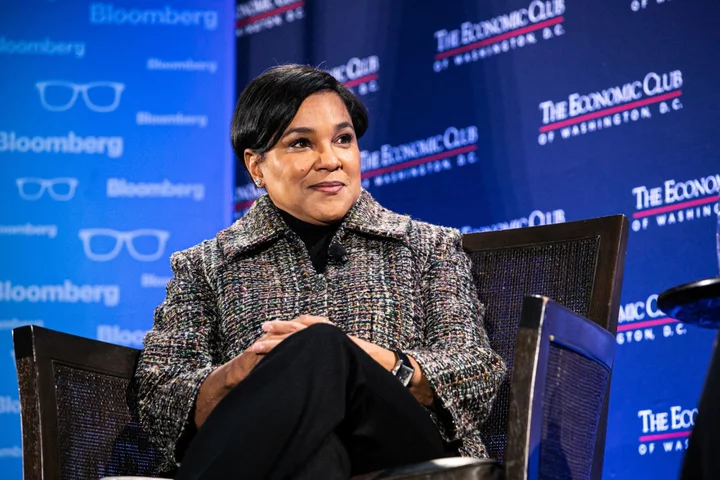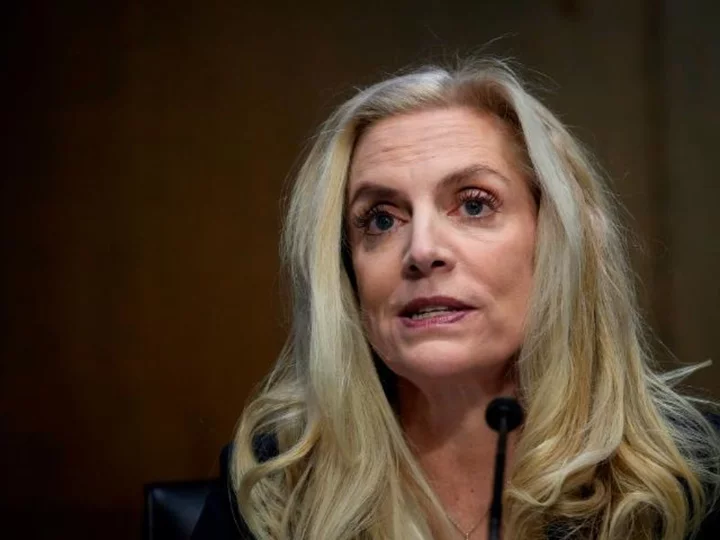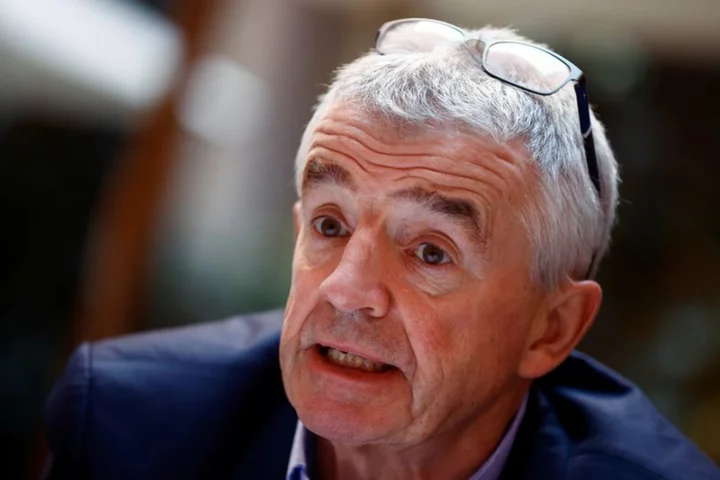Walgreens Boots Alliance Inc.’s Chief Executive Officer Rosalind Brewer ended her brief tenure at the top this week, as the company struggles to break away from its retail roots and move into more lucrative parts of health care.
Under Brewer’s leadership, the company added primary care centers to hundreds of US stores and acquired urgent-care provider Summit Health-City MD to draw in customers and move into patient care. But the transition has been rocky — last quarter, Walgreens slashed its full-year profit forecast. The stock has lost half its value since she took over in March 2021.
“It’s not narrative with a lot of ‘wins’ in it,” Bloomberg Intelligence Jonathan Palmer said in an email. The shares fell 2.1% at the New York market open.
In recent years, Walgreens has pushed into the health-care space in several ways. It’s most notable effort was a $5.2 billion investment in primary care provider VillageMD. The deal allowed Walgreens to open hundreds of doctors’ offices in its drugstores and move deeper into the primary care space.
Analysts mostly agree that Walgreens’s strategy for transitioning into a health-care company makes sense. However, Brewer’s downfall may have been failing to manage expectations of how some of the moves, like the investment in Village MD, would likely impact company profits in the short term.
“I think the strategy is sound; it’s just that the acquisition of VillageMD has dragged in earnings and cash flow,” said Brian Tanquilut, a Jefferies analyst.
Brewer is departing by mutual agreement, according to the statement. The move took effect Aug. 31 and board member Ginger Graham has been appointed as interim CEO, according to a statement Friday. Brewer, 61, was the only Black woman serving as a CEO in the S&P 500.
Hand-picked by chairman and former CEO Stefano Pessina, Brewer was chosen to transform the drugstore chain into a health-care provider to better compete with CVS Health Corp., which had been aggressively expanding with moves like the 2017 purchase of health insurer Aetna for almost $70 billion. While the pandemic brought some customers back to brick-and-mortar drugstores, chains have been hurt by competition from online retailers like Amazon.com Inc.
It’s been a challenging transition. Even its rival CVS took a hit earlier this year after it acquired Oak Street Health Inc., which runs primary care centers for Medicare recipients. Last quarter, CVS executives warned investors that profit over the next two years will be hurt as the company finds ways to cut costs as it shifts direction.
The difference is that CVS’s investment in Aetna has been profitable. Walgreens’ VillageMD is losing money. Analysts have said that the company’s ability for Walgreens to deploy capital for the health-care services segment is slowly drying up.
Investor Unease
Brewer came from Starbucks Corp., where she last served as chief operating officer. Pessina said her digital expertise and leadership skills would make up for her lack of experience in health care.
Since her arrival, Walgreens has been pushing more into health-care services and pulling back on its retail presence. Over the past few months, it announced plans to close 450 stores and cut 10% of its workforce. It also tried unsuccessfully to sell its UK chain of Boots drugstores.
The departure leaves a leadership vacuum at the company’s helm after James Kehoe stepped down from his role as chief financial officer last month, moving to the tech sector.
“We do see the interim CEO and CFO positions as potentially creating some investor unease,” Evercore ISI analyst Elizabeth Anderson said in a note. Still, given the company performance “it makes sense to retrench and search for a new leadership team with more extensive backgrounds in health-care services.”
--With assistance from Jeff Green.
(Updates throughout.)









